A while back, we examined the difference in sound quality between wired and wireless Apple CarPlay. Now that many Android-based smartphones have access to additional audio streaming codecs like LDAC and aptX, it’s time to check out how they perform in terms of signal accuracy and frequency response. We’ll use the Sony XAV-9000ES digital media receiver we tested in May 2024 for the test. Let’s see what happens!
The Test Criteria
The most important consideration in determining sound quality is frequency response. To evaluate this, we’ll conduct two tests. First, we’ll play a five-minute-long white noise track from an Android smartphone while it’s connected to the Sony radio’s USB port. We’ll use the averaging capabilities of our QuantAsylum QA403 to analyze the result. We are looking for as flat a response as possible here.
Next, we’ll connect the phone to the radio wirelessly and repeat the measurement. The frequency response results for an iPhone were similar over either connection.
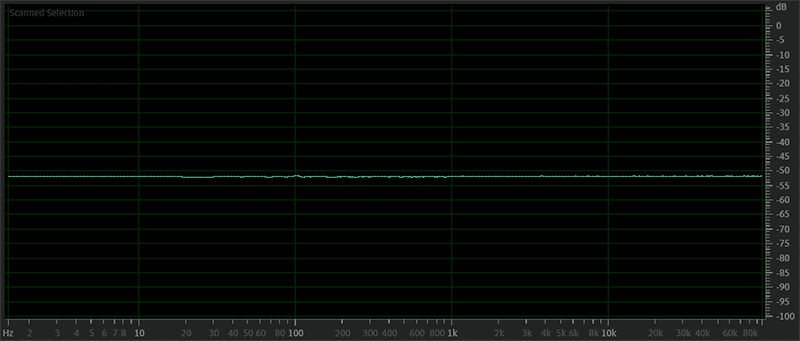
Spectral analysis of the white noise test track in Adobe Audition. Note the flat frequency response from <1 to 96,000 Hz.
The second test is to evaluate signal quality. We’ll play a 0dB 1kHz test tone for this test in both wired and wireless configurations. We’ll examine the harmonic content to evaluate how each scenario performs regarding purity. Perfect performance would mean that no additional harmonic information is added to the 1 kHz tone. In the case of the iPhone, the wireless connection couldn’t hold a candle to having the device hardwired to the source unit.
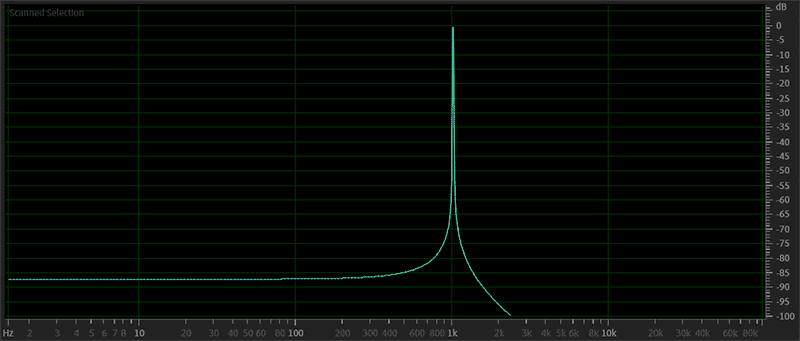
Spectral analysis of the 1 kHz 0dB test tone in Adobe Audition. Note that there are no harmonics present in the test tone.
For reference, we’ll include measurements of the white noise and 1kHz test tone tracks played back from a USB memory stick. With an Apple iPhone as the source option, playing your music from a USB memory stick was hands down the best choice.
Frequency Response Testing
We should have mentioned that we are using a Samsung S9 running Android 10 for the testing. Yep, it’s a bit old, but it has LDAC. Should we stumble on a more recent model, we’ll repeat the testing and update.
Let’s dive right into the frequency response results, shall we? First, let’s look at the performance when using a wired connection to the smartphone.
Up first, we have the analysis of the white noise track played back from a USB memory stick. We’ve zoomed in so you can see if there is any roll-off.
Overall, the response looks just as we expected—flat out from 10 Hz to 96 kHz. Now, let’s switch to a wired connection while using Android Auto and see if that affects anything.
It’s clear that the audio signal starts to roll off at about 14 kHz, and it appears to be about 20 dB down by 22 kHz. There’s no audio information above 22 kHz, so the signal is not considered hi-res. Now, let’s switch to a wireless connection and measure the white noise track again.
In this test of the Sony radio and Samsung S9 phone, we can see that nothing above approximately 17 kHz is passed from the radio. We’d really like to try a new phone, though, to confidently assert that the wireless connection is this bad in all cases.
Signal Purity
The next test is to evaluate how the different playback options affect signal purity. In a perfect world, no additional audio content would be added to the test tone. However, every audio device adds some amount of harmonic content. The less added, the more precise and accurate the system will sound, assuming the frequency response remains unaltered.
First, we have the distortion performance when playing our test tone from a USB memory stick.
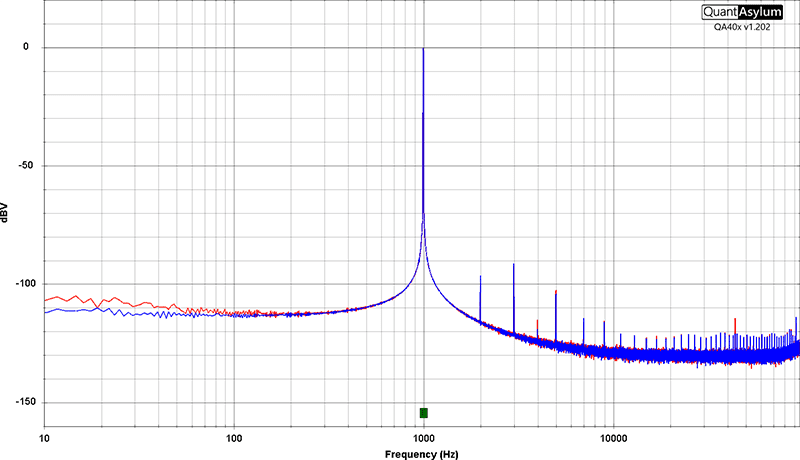
Spectral analysis of a FLAC 1 kHz test tone track played from a USB memory stick on the Sony XAV-9000ES.
Overall, the Sony performed well, with a THD+N specification of 0.00581% and an output right around one volt. This would be considered excellent performance. Now, let’s see what happens when we play the same track from the Samsung phone using a wired Android Auto connection.
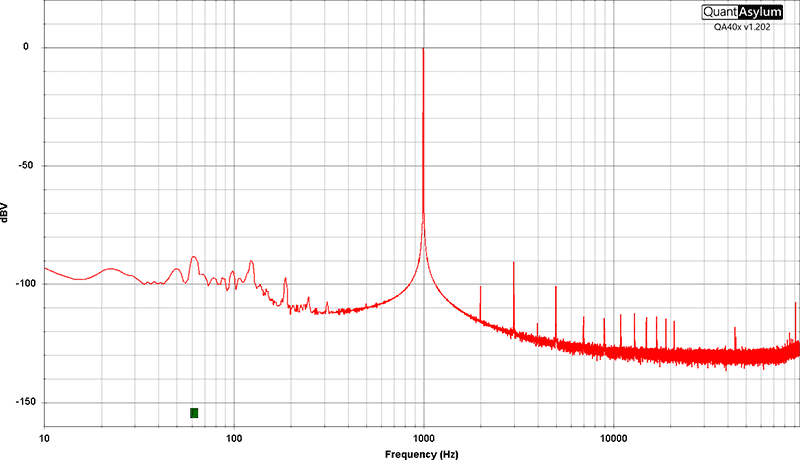
Spectral analysis of a FLAC 1 kHz test tone track played over a wired Android Auto connection on the Sony XAV-9000ES.
There’s a little more low-level noise below the 1 kHz tone, but overall, the performance is quite similar. Measured THD+N came in at a still respectable 0.01029%. Finally, let’s try this with a wireless connection.
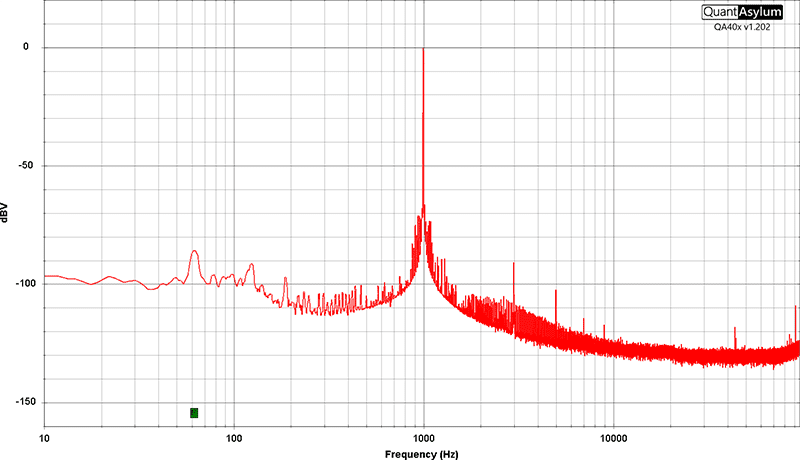
Spectral analysis of a FLAC 1 kHz test tone track played over a wireless Android Auto connection on the Sony XAV-9000ES.
Just as we saw when using an iPhone, the wireless connection adds a lot of low-level noise. While the graph looks much worse, the 3 kHz, -91 dBV spike remains the primary factor in determining total harmonic distortion. As such, the measured performance only decreases slightly to 0.01139%. This is still considered to be a good distortion number.
Conclusions on Wired Versus Wireless Android Auto Sound Quality
From the standpoint of our 1 kHz signal purity test, it remains clear that a USB connection outperforms wired or wireless connections. This is especially true regarding frequency response. The Android Auto connections would sound duller and less detailed than playing music from a USB memory stick.
If you’re after the best sound quality possible from a premium multimedia receiver, then put your music collection on a USB memory stick and connect that to your radio. If your radio doesn’t support the latest high-resolution audio formats, drop by a local specialty mobile enhancement retailer to see what they have to offer to upgrade the clarity of your mobile audio system.
This article is written and produced by the team at www.BestCarAudio.com. Reproduction or use of any kind is prohibited without the express written permission of 1sixty8 media.
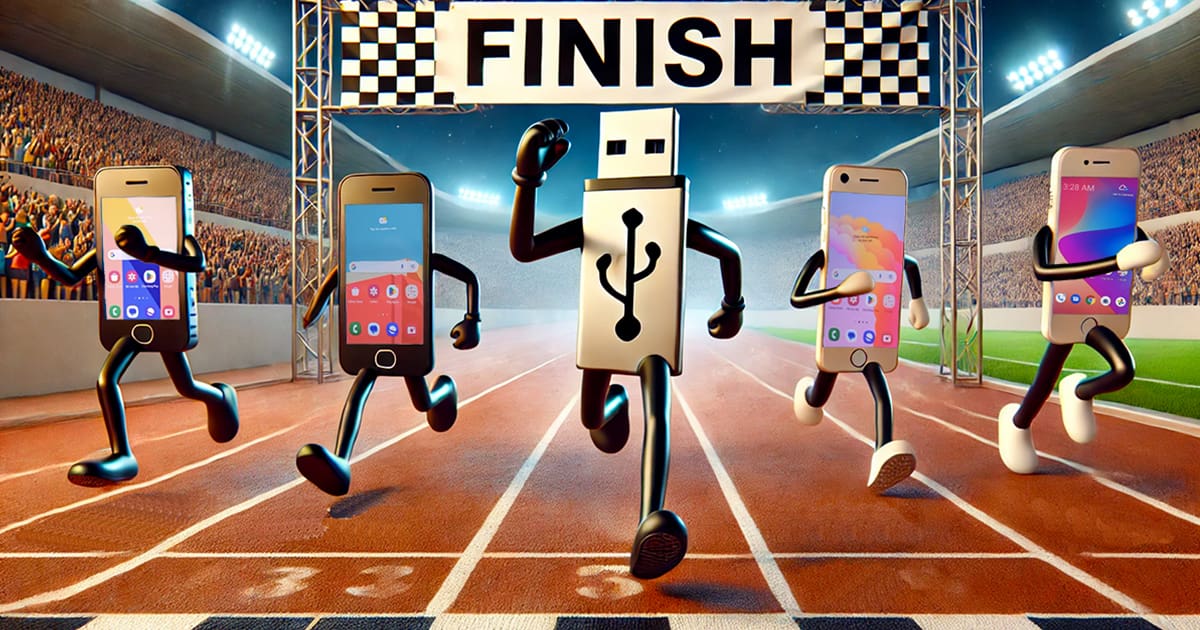
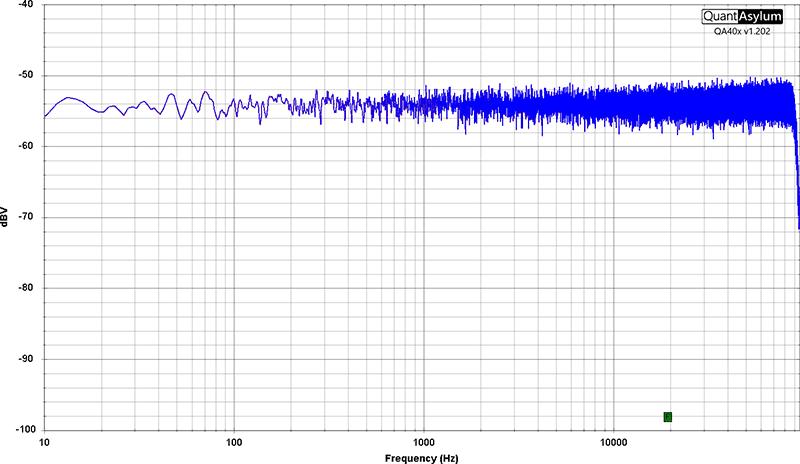
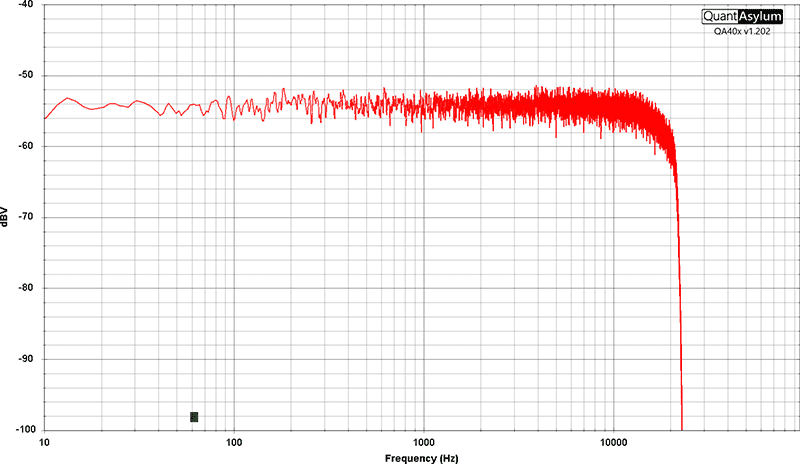
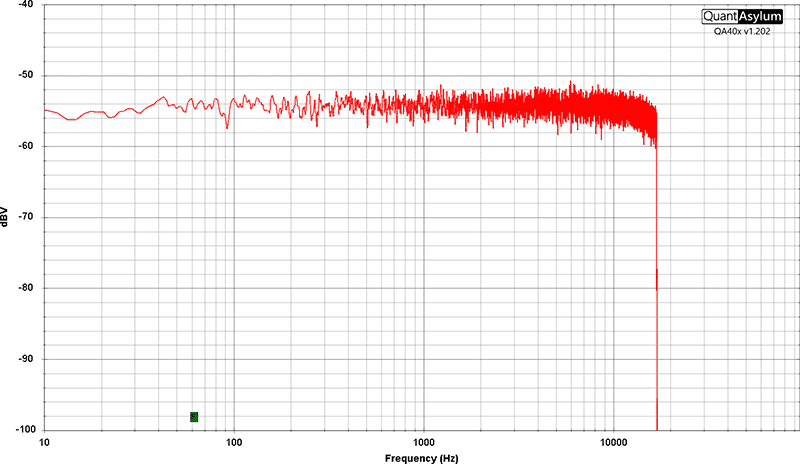
Leave a Reply